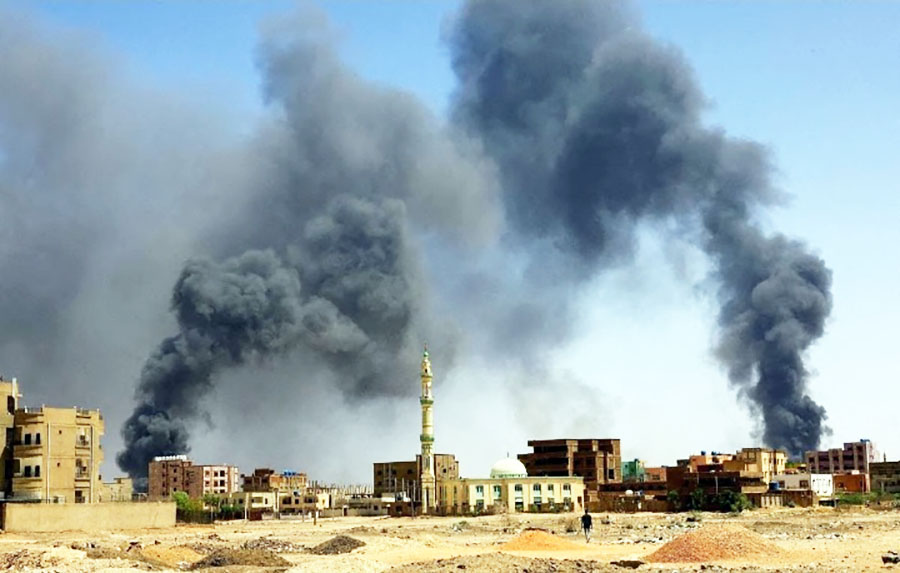
US begins implementing new sanctions on Sudan
Source: Asharq Al-Awsat newspaper
the administration of US President Donald Trump has begun implementing new sanctions on Sudan after accusing the government of the head of the Transitional Council and commander of the Sudanese Armed Forces, Lieutenant General Abdel Fattah al-Burhan, of using chemical weapons during 2024 in the context of the ongoing war with the Rapid Support Forces, led by Lieutenant General Mohamed Hamdan Dagalo, known as "Hemedti."
The United States had imposed a series of sanctions on both sides of the Sudanese war for what it considered serious violations and declared its "full commitment to holding accountable those responsible for contributing to the proliferation of internationally banned weapons."
US State Department spokeswoman Tammy Bruce announced at the end of last May that the United States had concluded, months earlier, that "the Sudanese government used chemical weapons during 2024." She referred to the US Chemical and Biological Weapons Control and Elimination Act of 1991, noting that Congress had reviewed a report regarding "the Sudanese governments non-compliance with the Chemical Weapons Convention, despite its being a party to it."
Within 15 days of the State Departments notification to Congress, the United States imposed a series of sanctions on Sudan, including restrictions on US exports to the country and access to US government credit lines. These sanctions took effect on Friday, demanding that the Sudanese government "cease all use of chemical weapons and fulfill its obligations under the Chemical Weapons Convention." The US affirmed that it "remains fully committed to holding accountable those responsible for contributing to the proliferation" of these deadly weapons.
Last January, Washington imposed sanctions on Burhan, accusing him of insisting on ending the conflict through war rather than through negotiations. It also concluded that members of the Rapid Support Forces and allied militias committed "genocide" and imposed sanctions on some of the forces leaders, including Hemedti.
The New York Times quoted four senior US officials as saying that the Sudanese army had used chemical weapons at least twice during the conflict, deploying them in remote areas of the country. The Times explained that the weapons used were chlorine gas, which causes permanent damage to human tissue.
For its part, the government was quick to reject the US statements and accusations, saying that the accusations and decisions issued by Washington were "characterized by political blackmail and distortion of facts." It described the US allegations as "false," as they "once again targeted the Sudanese army after field achievements that changed the reality of the battle and after the appointment of a prime minister."

